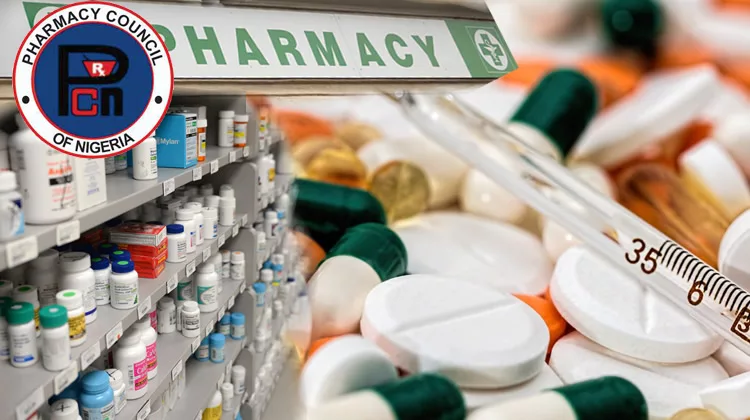Nigerian manufacturers in the pharmaceutical sector have bemoaned the high interest rate, claiming it is destroying the sector.
Recall that the Central Bank of Nigeria’s (CBN) increasing Monetary Policy Rate (MPR) has caused the Nigerian financial services industry, particularly merchant and commercial banks, to modify their lending rates.
A total of 25 out of 31 lending financial institutions provide different economic sectors with maximum borrowing interest rates (ranging from 25 to 40 per cent) above the MPR.
For instance, FCMB, with an interest rate of 1.15 per cent on savings deposits, prices its loans at a maximum of 40 per cent and a prime lending rate of 22.50 per cent.
FSDH Merchant Bank allows prime customers to access loans at 18 per cent, while offering a maximum lending rate of 43 percent.
Pharmaceutical manufacturers, who convened at the 13th Annual Symposium and Award Ceremony, organised by the Health Writers Association of Nigeria (HEWAN), in Lagos, averred that, no company could function on this percentage, while simultaneously urging the federal government to lower the MPR to 20 percent or less.
Chairman of ST.RACHEAL’S Pharmaceutical Nigeria Limited, Pharm. Akinjide Adeosun said Multinational corporations like GSK, Sanofi, and others have lately left Nigeria, and their departure has left a vacuum in the country.
Operating in Nigeria has proven to be extremely tough for these pharmaceutical businesses due to a demanding economic environment that includes variable exchange rates, hefty import levies, stringent regulatory processes, and bureaucratic impediments, Adeosun noted.
While the federal government of Nigeria, through the Central Bank of Nigeria (CBN) has steadily raised the MPR to reduce the high rate of inflation, this is no longer sustainable, Adeosun said, even as he urged the government to focus on growth rather than inflation.
“The strategy of the federal government has been to increase MPR. Recall that inflation is when you have fewer goods being chased by plenty of money, and when that happens, you will have an increase in prices of goods. It is a global norm that when you want to stem inflation, you must increase MPR, because once you increase MPR, lending increases, thereby mopping up excess money in circulation.
“No doubt, the governor of CBN, Olayemi Cardoso is doing an excellent job since he came on board, because he has been able to use monetary tools to be able to manage the economy. If he hadn’t done what he is doing around monetary policy, Nigeria would have been in a dire situation by now.
“However, after trying this for a year, and inflation is still high; the lending rate is also high, it is time to switch gears. When you borrow money at an interest rate of about 38 percent to import drugs into the country, coupled with the high cost of fuel/diesel, clearing cost, import duties and levy duties (as not all drugs attract zero per cent. Import duties may be zero per cent, but levy is about 20 per cent), no business can survive.
“CBN has been increasing MPR for about a year, without any concrete result. It is now time to leave inflation alone and start chasing growth. You cannot chase growth, if manufacturers cannot borrow at a single digit,” he explained.
Recall that the Tinubu’s administration created a window where manufacturers can borrow between N500 million to N1 billion, at nine percent interest rate. Adeosun lamented that the fund is not accessible, as he has applied for almost two months now, but hasn’t seen anything.
Adeosun however urged the government to chase growth and leave inflation alone, adding that, “Reduce MPR (@26.25 percent) to enable commercial lending rate crash to single digit from the present over 30 percent thereby stimulating economic growth. I recommend a managed float of the currency. The current N1, 500.00 to 1 USD exchange rate is not sustainable in the long term.”
In the same vein, the national chairman Association of Community Pharmacists of Nigeria (ACPN), Pharm. Adewale Oladigbolu said the pharmaceutical sector is depressed. “This industry affects everything we do as a country since a healthy population is productive and contributes to economic prosperity,” he added.
Oladigbolu said the pharmaceutical industry has a funding gap in billions of naira, adding that, “We don’t have enough capital to operate. We don’t also have enough facilities in Nigeria to produce drugs locally. It is important that the government come in heavily.





